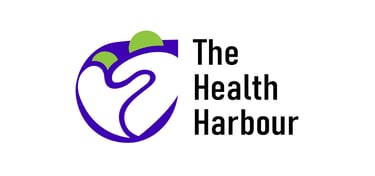The Role of Technology in Transforming Medical Tourism: Trends and Future Outlook
Technology is transforming medical tourism by enhancing patient care, safety, and convenience. Innovations such as telemedicine enable remote consultations, AI improves diagnostic accuracy, blockchain secures medical records, and virtual reality aids patient education. These advancements are driving a more personalized, transparent, and accessible future for healthcare travel worldwide.


Introduction to Medical Tourism
Medical tourism has emerged as a rapidly growing industry, as patients seek healthcare solutions abroad that are both cost-effective and of high quality. With healthcare costs skyrocketing in many countries, the allure of traveling for medical procedures is becoming increasingly popular. However, this trend doesn't just hinge on financial considerations; it is significantly influenced by advancements in technology, which are transforming the landscape of medical tourism.
Emerging Technologies Enhancing Medical Tourism
Telemedicine is one of the most impactful innovations enhancing patient care and experiences in medical tourism. This technology allows patients to consult with medical professionals remotely, facilitating initial consultations and follow-up care without the need to travel multiple times. Not only does telemedicine save time and resources, but it also significantly eases the anxiety typically associated with seeking treatment abroad.
Moreover, AI-driven diagnostics are revolutionizing how patients receive care. By leveraging artificial intelligence, healthcare providers can analyze data more efficiently, improving diagnostic accuracy and expediting treatment plans. This technology not only aids in swift decision-making but also empowers patients with faster, more informed options, ultimately enhancing their travel experiences for medical treatment.
Another noteworthy advancement is the use of blockchain technology to secure medical records. Patients traveling internationally often face challenges regarding the confidentiality of their health information. Blockchain provides a solution by creating an immutable and transparent ledger, ensuring that patient data remains protected whilst being easily accessible to authorized healthcare providers. This element of transparency enhances trust between patients and providers, a crucial factor in medical tourism.
Future Outlook of Medical Tourism and Technology
As we look to the future, several possibilities emerge that could further reshape the medical tourism landscape. Personalization is expected to take center stage, with technology facilitating tailored healthcare solutions that cater to the individual needs of patients. By utilizing data analytics and machine learning, healthcare providers can offer services that are not just standardized but customized to match personal preferences and medical history.
Furthermore, innovations such as virtual reality (VR) are gaining traction for patient education, easing the learning curve associated with treatments. VR can provide immersive simulations of procedures, thereby enhancing patients' understanding and expectations of their care. This kind of innovative technology promises to alleviate uncertainties, fortifying patients' confidence in their decisions to seek treatment abroad.
Another potential trend is the increasing focus on safety during medical travel. Technologies that enhance health monitoring and ensure patient well-being while traveling will likely be more emphasized. Innovations that facilitate real-time health tracking and emergency support systems can significantly bolster the safety perceived by patients considering medical tourism.
Conclusion
In summary, technology plays a pivotal role in transforming medical tourism, driven by trends that are enhancing patient care and simplifying the process of seeking treatment abroad. From telemedicine to AI-driven diagnostics, blockchain, and virtual reality, these advances not only streamline the experience but also promise a brighter, more personalized and secure future for patients worldwide. As technology continues to evolve, so too will the potential of medical tourism, improving global healthcare access for all.






